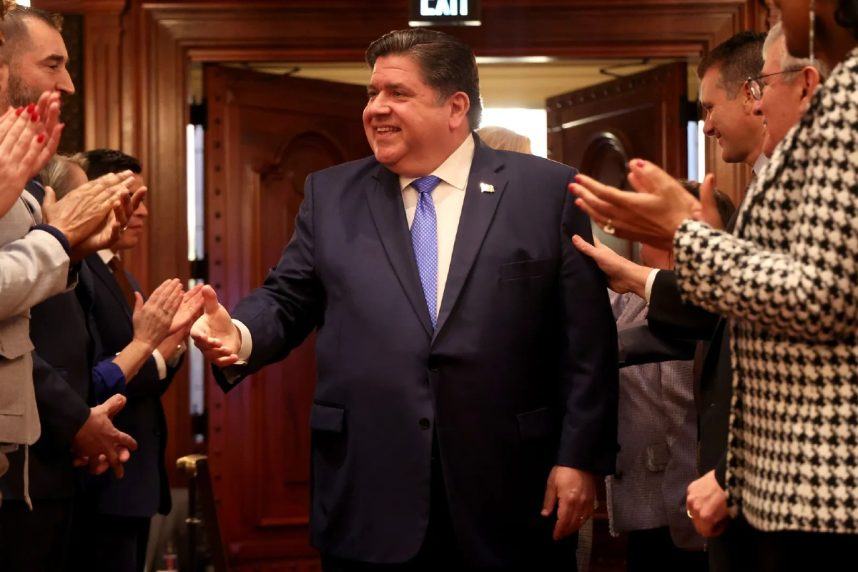Online Betting, Marijuana Altering State Tax Bases
Posted on: April 22, 2024, 08:14h.
Last updated on: April 23, 2024, 10:04h.
US states have long applied “sin taxes” to items such as alcohol, beer, cigarettes, other tobacco products, and wine as avenues for bolstering revenue. More recently, marijuana and sports wagering have been added to the mix, representing alterations to some states’ revenue compositions.

Currently, 38 states and Washington, DC allow some form of sports wagering, well ahead of the 25 that permit recreational cannabis consumption among adults. Moody’s Investors Service views both regulated sports wagering and recreational weed as crucial drivers of state and local revenue.
Shifting consumer preferences, especially related to alcohol and tobacco, will continue to influence the amount of tax revenue governments can generate,” according to the research firm. “Private industry is responding accordingly, with evolving product offerings that continue to shape the ‘sin tax’ base. Tax rates vary across the country, driving the amount of revenue states and local governments can generate and having varied impacts on consumer behavior.”
Gaming companies frequently tantalize state regulators with the idea of higher receipts should betting expansion be approved. Marijuana brings its own set of potential tax perks, explaining why some states have moved swiftly to approve both sports wagering and recreational marijuana.
Betting, Marijuana Taxes of Increasing Importance to States
Entering 2024, more than half of Americans lived in states with some form of short- or long-term budget shortfalls, according to Pew. Large states, such as California, New York, and Pennsylvania have some of those worst budget issues.
Of that trio, California doesn’t permit sports betting in any form, but New York and Pennsylvania are home to two of the largest online sports wagering markets in the US. Those two states also apply two of the highest tax rates on that activity.
“States levy significant taxes on sports books’ gross gaming revenue, though some allow the deduction of certain costs with long-term implications for business viability,” added Moody’s.
Some states allow sportsbook operators to deduct promotional spending from their tax tabs, but some are actively attempting to close that loophole because if that practice is halted, it’d likely lead to increased revenue for the states.
Betting, Marijuana Taxes Bigger Than Alcohol, Cigarettes
Moody’s observed that states that tax marijuana and sports betting in addition to alcohol and tobacco “generate a minimum of 2.5% of own-source revenue” compared to just 0.7% on liquor and tobacco. Plus, societal acceptance of betting and marijuana is increasing.
“Meanwhile, the exploding popularity of online sports betting is pushing casino operators to invest more heavily in mobile gaming,” concluded the ratings agency.
Those are among the reasons why states such as Illinois (sports betting) and New Jersey (iGaming) are seeking tax increases on internet-based wagering. Moody’s did point out that alcohol tax revenue is rising in many states, and that tobacco levies are surprisingly steady.
Related News Articles
MVB Financial Top Bank Bet on iGaming Momentum, Says Analyst
Sportsbook Operator Promo Spending Wanes Amid Profitability Focus
Churchill Downs, Penn Entertainment Lauded in New Coverage by Mizuho
Most Popular
FTC: Casino Resort Fees Must Be Included in Upfront Hotel Rates
Genovese Capo Sentenced for Illegal Gambling on Long Island
NBA Referees Expose Sports Betting Abuse Following Steve Kerr Meltdown
UPDATE: Former Resorts World & MGM Grand Prez Loses Gaming License
Most Commented
-
UPDATE: Whiskey Pete’s Casino Near Las Vegas Closes
— December 20, 2024 — 30 Comments -
Caesars Virginia in Danville Now Accepting Hotel Room Reservations
— November 27, 2024 — 9 Comments -
UPDATE: Former Resorts World & MGM Grand Prez Loses Gaming License
— December 19, 2024 — 8 Comments -
FTC: Casino Resort Fees Must Be Included in Upfront Hotel Rates
— December 17, 2024 — 7 Comments
















No comments yet